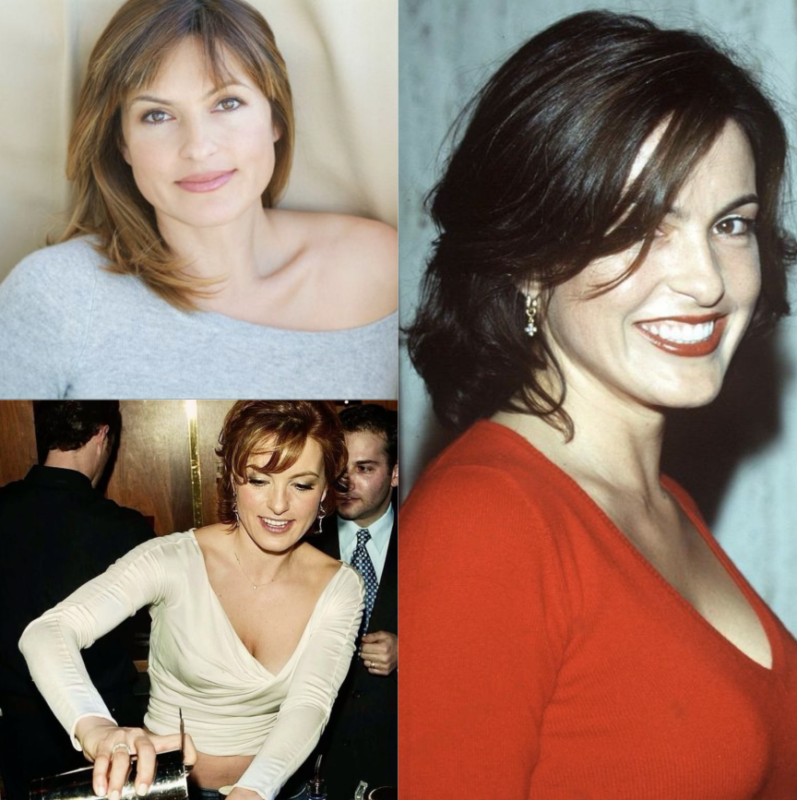
In this week’s PEOPLE cover story, Law & Order: SVU star Mariska Hargitay courageously shares a deeply personal chapter of her life. For the first time, she opens up about a harrowing experience from her thirties and the profound journey that followed.
“A Man Raped Me”—Mariska Hargitay’s Powerful Revelation
Mariska Hargitay reveals a traumatic event from her past, describing it as more than just an assault—it was an exercise of control and dominance. “It wasn’t sexual at all,” she says. “It was overpowering control. He was a friend. Then he wasn’t.” Despite her attempts to escape through humor, charm, and reason, her assailant overpowered her, leaving her in a state of fear and disassociation.
In her own words, Hargitay describes entering a “freeze mode,” a common response to trauma when escape isn’t possible. “I checked out of my body,” she recalls. Unable to process the experience or even believe it had happened, she removed it from her narrative. “I now have so much empathy for the part of me that made that choice,” she reflects. “It never happened. Now I honor that part: I did what I had to do to survive.”
A Journey Toward Healing and Advocacy
For years, Hargitay focused on building her foundation, Joyful Heart, dedicated to helping survivors of abuse and sexual violence. While she was creating a public symbol of healing, she was also on a personal journey. “I look back on speeches where I said, ‘I’m not a survivor,’” she admits. “I wasn’t being untruthful; it wasn’t how I thought of myself.”
Her perspective began to shift as she started discussing her experience more openly with close friends and family. They gently helped her recognize the reality of what happened. “They were the first ones to call it what it was,” she notes. This supportive approach allowed Hargitay to confront her trauma more honestly.
Understanding Trauma and Challenging Perceptions
Now, Hargitay has a clearer understanding of trauma and its effects on the mind and memory. “Trauma fractures our mind and our memory,” she explains, likening it to a broken mirror. She emphasizes the importance of addressing acquaintance rape, highlighting that many still view rape as a stranger assault, while ignoring the reality of attacks by people known to the victim.
Hargitay acknowledges that survivors have often found strength in her portrayal of Olivia Benson, her character on SVU. Yet, she finds the support from fellow survivors even more profound. “They’ve experienced darkness and cruelty,” she says, “and they’ve done what they needed to survive.”
Changing the Narrative Around Sexual Assault
Hargitay’s vision for sexual assault awareness has evolved. She once hoped for a world where discussing sexual assault was as accepted as talking about cancer. “Tell someone you’ve survived cancer, and you’re celebrated,” she notes. “I want the same response for sexual assault survivors.” She insists that the shame should belong to the perpetrator, not the victim.
Her determination extends beyond awareness to ending sexual violence. “It exists because power structures are in place that allow it to happen,” she asserts. “The violence ends when the power structure changes.”
Seeking Justice and Moving Forward
For Hargitay, justice involves acknowledgment and apology. “I want an acknowledgment and an apology,” she says. “I’m sorry for what I did to you. I raped you.” Though she recognizes this won’t undo the past, she believes it is a crucial step in her healing process.
As she approaches her 60th birthday, Hargitay reflects on her journey with gratitude. “I’m deeply grateful for where I am,” she says. “I’m renewed and I’m flooded with compassion for all of us who have suffered.” Her story is a testament to resilience, ongoing healing, and the power of sharing one’s truth.
